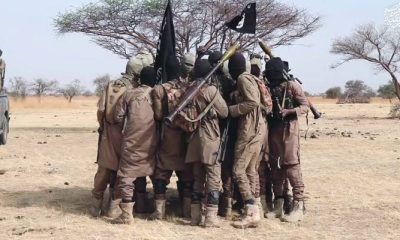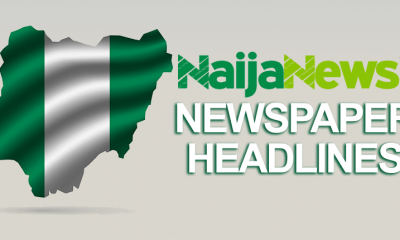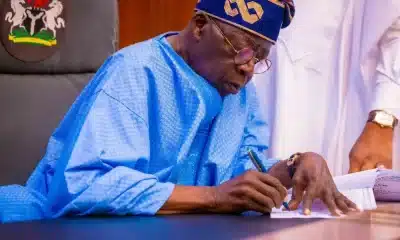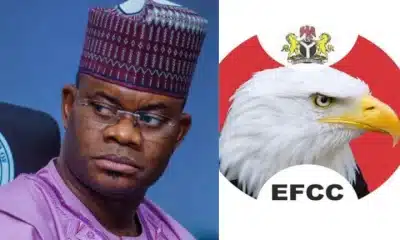Nigeria News
Full Interview: Why President Tinubu Should Be Given More Time – Sanwo-Olu [Photos]
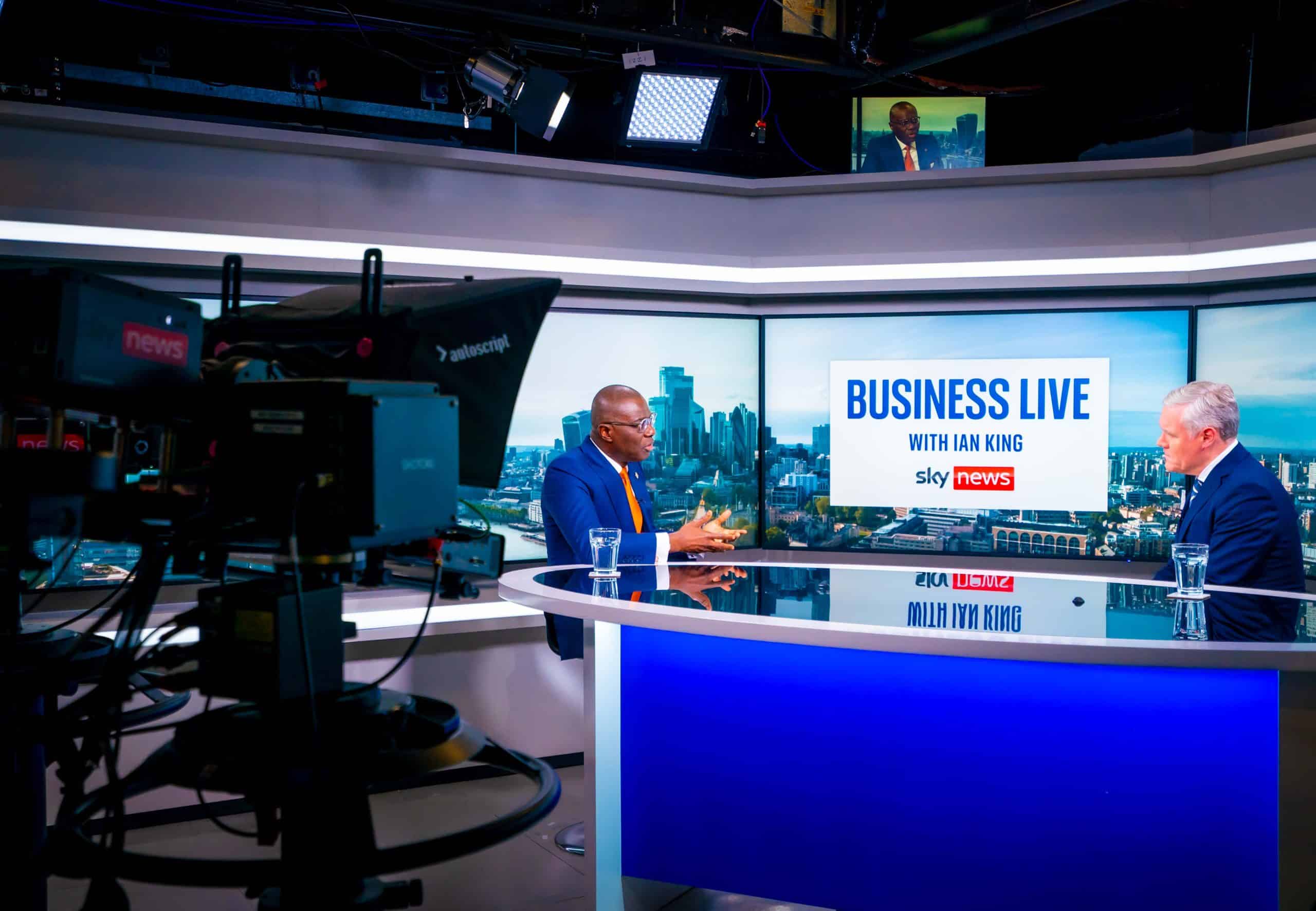
Governor Babajide Sanwo-Olu of Lagos State has spoken on Lagos participation in the Lord Mayor’s Show in London, the inauguration of the Lagos International Financial Centre Council, commitment of his administration to attract more investments to the State and President Bola Tinubu’s government.
Naija News reports that the governor spoke on these issues during an interview on ‘Business Live with Ian King on Sky News’ in London, on Friday.
Read the full transcript of the interview below:
What kind of growth are you expecting in Lagos State?
Right now, the population of Lagos is over 20 million and we will be conducting another census later next year, maybe by the second quarter or third quarter. But in terms of GDP, we have seen two, three percent GDP growth in the last four years. So, it is about $130 billion now. In terms of numbers, it makes the state the fifth-largest GDP growth in Africa. The GDP of Lagos is actually bigger than the GDP of Kenya; is bigger than Ghana, is bigger than Rwanda and is bigger than Senegal. So, Lagos as a sub-national, is actually very big in how it stands and how it sits and it is all of that conversation that we think a lot of people need to know what is happening in Lagos and how we can use the Lagos story to sort of tell the African story and be able to put it into where it should really be.
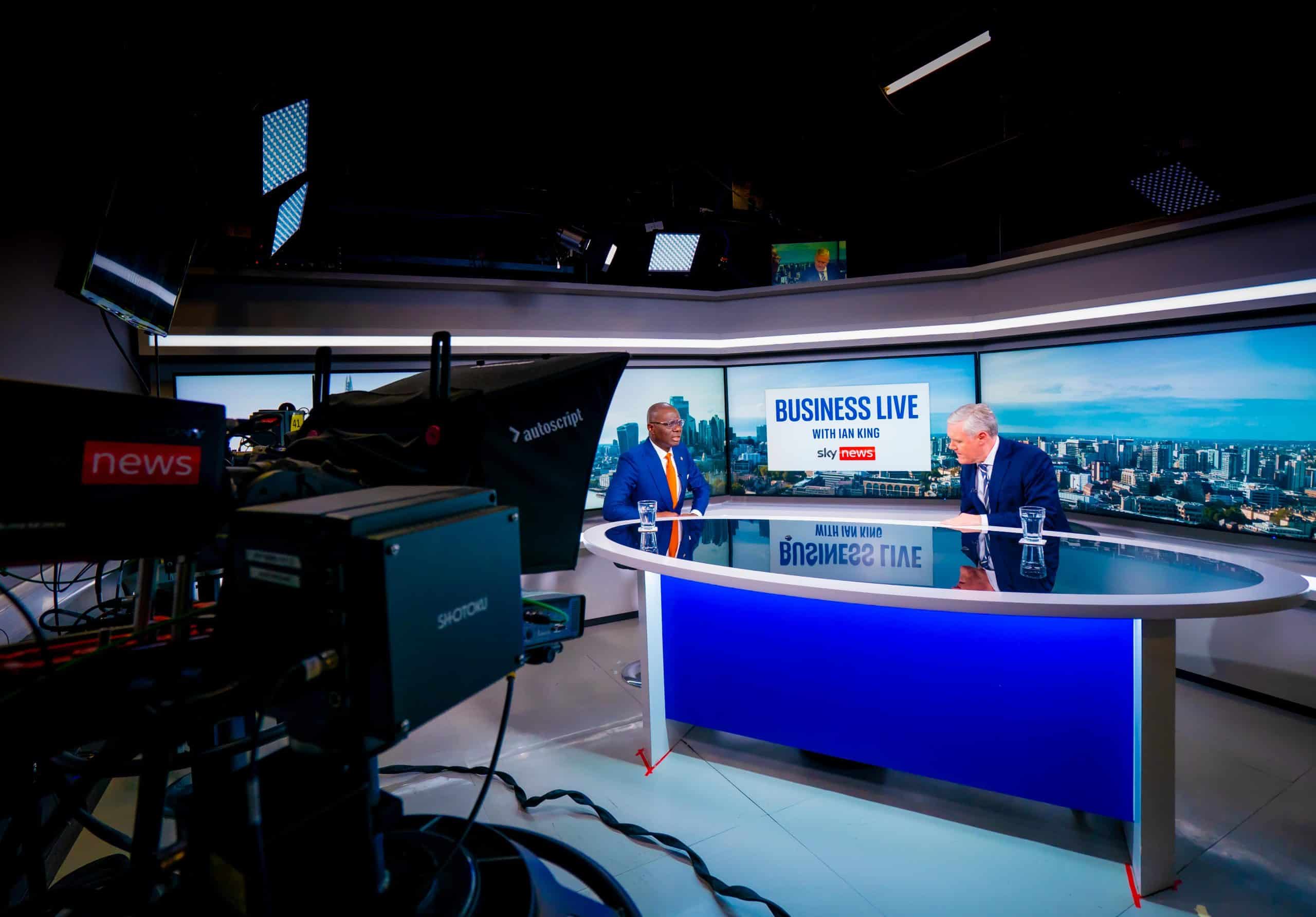
You just established the Lagos International Financial Council, what are you seeking to achieve with that?
The whole idea is for us to be able to let the world know what is happening in Lagos. We are starting with London because we have a lot of history with the city of London and we want them to know what is happening in Lagos. The Council will set up strategies where we can handhold companies; we can handhold British companies and investors, foreign direct investors that want to come into Lagos. Let us know what are the red tapes. What are the things they want us to do? The regulatory framework and legal framework. What kind of permits do they need to have? What kind of approvals do they need to have?
The Council is going to set up structures where communication and collaboration would happen; where we can set them on the right trajectory, where we can indeed listen to them and know what are the things they require us to do. And going forward, we have been able to also analyse how well we are doing that to be able to respond to the needs of the private sector at that time. And I on the political side can indeed give it all of the fit.
We are looking at business to government, and business to business, but pretty much just making sure that the environment is suitable for business. It is conducive and we can indeed grow the economy of the city and the state, create jobs for our people, and by extension also create wealth for the investors who are coming into the system.

In seeking to attract international investments into Lagos, what are your priorities? Which are the sectors that you are most keen to expand?
The tech industry is very important. For the past three or four years, Lagos has remained the tech startup capital in Africa. So, there is still a lot of depth that we need to bring into that space. The financial services. Yes, there are a lot of financial products that still need to be deepened in that sector. So, we want to see a lot more international financial organisations come into Lagos.
We want the creative industry to also have a play in our economy. Then, of course, general and consumer products. Because of the population we have, we believe anything indeed could have a market. You could have your share of the market. Petrochemicals, consumer products. Any of those three or four areas will indeed do very well in Lagos.
It sounds from what you are saying, the economy is very service-focused…
Pretty much. The reason is because we are just a little tiny space. We don’t have that much arable land for farming or agricultural products. You can see us leveraging on the final part of it which is value addition. But in terms of real agricultural land space, we don’t have the space. We can do very well because of the population in terms of services, technology, communication, IT, infrastructure, and anything around that space.

Obviously, Nigeria as a whole is a very young country. It is a young population. Is Lagos pretty similar in that respect?
We lead that population; we lead that young, beautiful and capable population. About 60 to 65 percent of our population are under 35 and it is growing. They are very capable, resource-driven and intelligent. So, these are some of the skills we want the organised practice to come and annex. You could be in Lagos and be working for a company in the United Kingdom or Europe with the kind of infrastructure that we are putting in place and we know that they are ready and good to go. So those are the future of work you can get in Lagos. The population is there.
One of the problems Nigeria has had historically is holding onto its talent and stopping people from going to work overseas. Is that still an issue for you and are you finding it easy to retain talent?
Well, it is still an issue, but that is why we are here and that is why I am having this conversation and we are trying to do the collaboration. That is one of the reasons the Council was set up for them to see us all as a global market, where it doesn’t matter where you are. We want to still be able to retain them as Nigerians back home but give them the global opportunity, that they all seek to benefit from. We are trying to say we can derisk some of those risks that come with trying to not secure the talent. They can be back in Nigeria, in Lagos while they are working for international companies. That is what technology does these days.
Who do you think you are competing with primarily?
We are truly competing with ourselves and we cannot sit back and just be okay with the status quo. No, we cannot. We know there is a whole lot that we can give as a state, as a people and as a country. We are the largest in the continent in terms of GDP and population. But we need to double up. We need to be able to let the world know what the potentials are. We have a new government at the central; the central government is just less than six months old.
Last week, the President (Bola Tinubu) was in Saudi Arabia. In the last two months, he has been in India, UAE and Saudi Arabia. His Vice President (Kashim Shettima) has been to China. They have been to Brazil. So, we are all out now, just telling the real story of what is happening in our country and me in my state so that people will understand that there is still a lot of energy we have. There are a lot of people that we need to be able to show out and bring investment, create wealth, reduce poverty and give people a sense of what the world has for us to be able to take on.
It sounds like the United Kingdom is the biggest foreign direct investor in Nigeria. From what you are saying, it sounds as though that might not be the case for too much longer if you have Saudi money and Chinese money coming in differently….
That is why they shouldn’t miss this opportunity. The Saudis are coming, the Chinese and the Americans are there already. The British are there because historically in the colony of Lagos, Nigeria and Britain have been for almost two centuries now. But we still cannot just leave the comfort zone. We have been there for 30 or 40 years but we still need to be creative, innovate and think out of the box. We need to be able to tell the stories differently because the world is actually becoming a lot more competitive.
You know competition is critical. Sustainability is very important for us. So, we need to also be able to come and show, and that is one of the things we have been able to achieve from the Lord Mayor’s Show just for people to know what we are about, what we are doing and to be able to let the business community in the United Kingdom where there is a larger diaspora population know in the United Kingdom that we are also open for more business.
President Bola Tinubu introduced a wide range of economic reforms shortly after he was elected. We are six months on from that now. Have they achieved what you would have hoped they would have done?
I believe six months is a short term but in terms of a clear strategy and focus, he is there. What he has done, no President in Nigeria has been able to take the audacity to remove the subsidy on petrol pump prices. That in itself will save the country about $2.5 billion. These are funds that can go into other areas in education, health and poverty reduction. But more importantly, is what he brings to the table in terms of having been a Governor in Lagos State before. That is one.
Secondly, the fact that he is challenging his cabinet members to say to them, if you don’t sit up and do the right thing, I am going to kick you out. He had said that to them two, three weeks ago and he said to them that we got a job to do, we have to do it well. So, what we are asking our citizens is, let us give him a bit more time. It is pretty tight up right now, but let us give him a bit more time. He set up a very bold, laudable agenda in his Renewed Hope. I think another six months from now we will begin to see the relief coming out from all of his interventions and I believe that the population will be better off for it.



